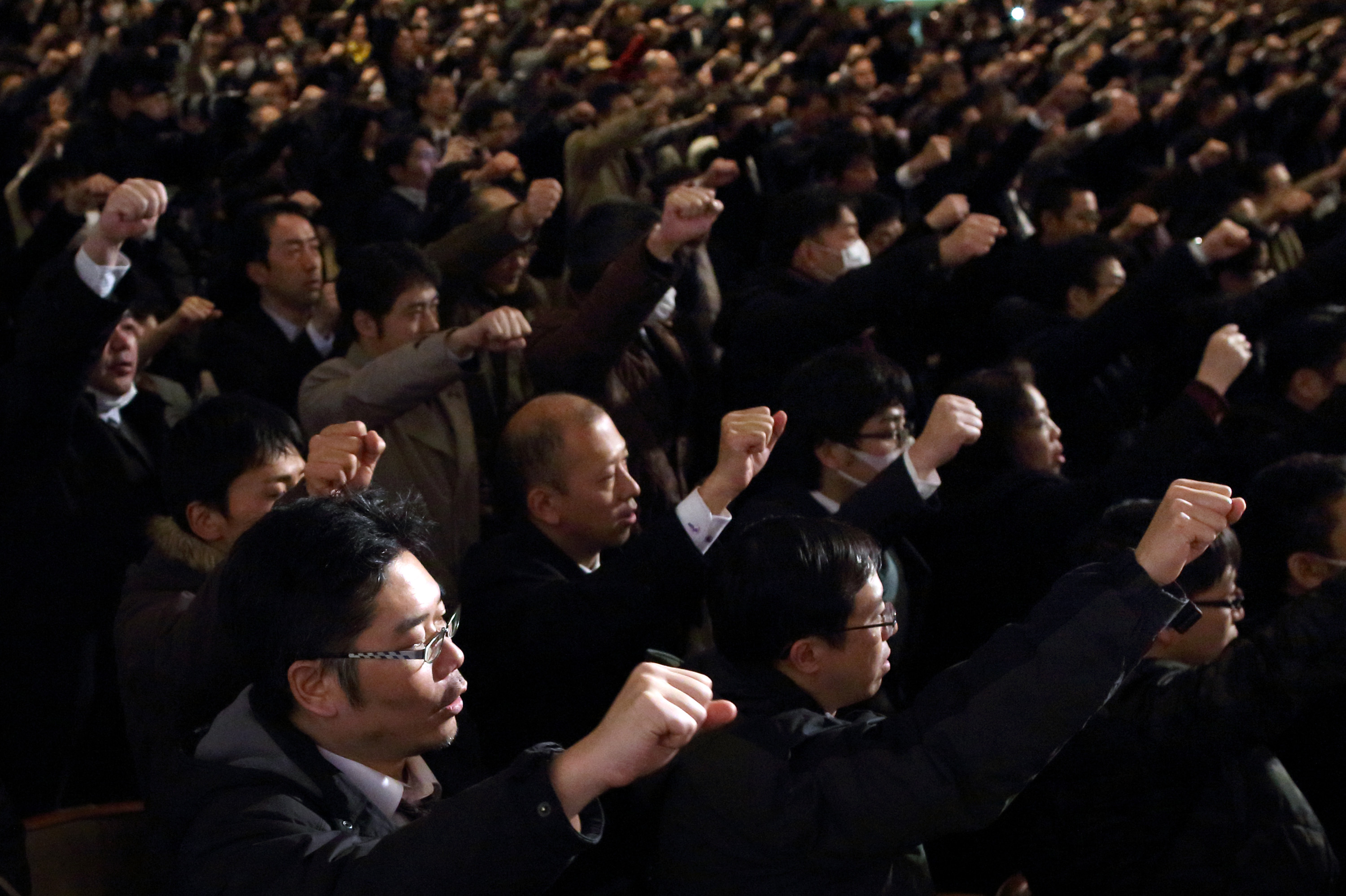As annual wage talks climax this month, one of the obstacles to Prime Minister Shinzo Abe's campaign for outsize pay raises has its roots in the 1940s: a stunted union movement.
The nation's top union boss, Nobuaki Koga, doesn't personally know what it's like to go on strike. Koga, the president of the Japanese Trade Union Confederation, says he has mixed feelings about what became a cozy relationship between employers and their company-based unions.
Cooperation — encouraged during the U.S. Occupation, when Gen. Douglas MacArthur cracked down on aggressive unions — helped fuel the nation's rapid postwar revival. Now, weakened by economic stagnation and the legacy of a fractured labor movement, unions are struggling to pressure the nation's biggest companies, even as they post record profits amid low unemployment.



